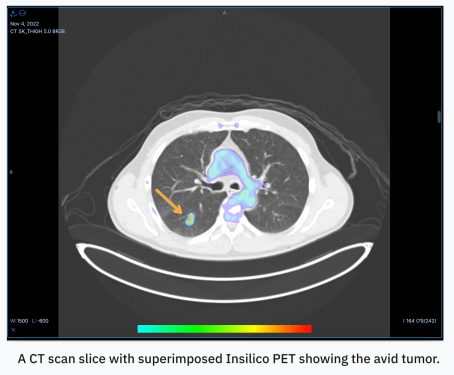If you have ever had a PET scan, you know it is an ordeal. The scans help doctors detect cancer and track its spread, but the process itself is a logistical nightmare for patients. It starts with fasting for four to six hours before arriving at the hospital. This is especially difficult if you live in a rural area where the local hospital does not have a PET scanner.
Once at the hospital, you receive an injection of radioactive material. After the injection, you must wait for about an hour while the substance circulates through your body. Next, you enter the PET scanner and must lie completely still for thirty minutes while radiologists capture the image. Following the scan, you have to physically distance yourself from elderly people, young children, and pregnant women for up to twelve hours because you are temporarily semi-radioactive.
Another significant challenge is that PET scanners are concentrated in major cities. This is because the radioactive tracers they require must be produced in nearby cyclotrons, which are compact nuclear machines, and used within a few hours. This severely limits access for patients in rural and regional hospitals.
But what if artificial intelligence could convert CT scans, which are far more accessible and affordable, into PET scans? This is the proposal from RADiCAIT, an Oxford spinout that recently emerged from stealth mode with one point seven million dollars in pre-seed financing. The Boston-based startup, which is a Top 20 finalist in Startup Battlefield at TechCrunch Disrupt 2025, has just opened a five million dollar funding round to advance its clinical trials.
The company’s CEO, Sean Walsh, explained that they took the most constrained, complex, and costly medical imaging solution in radiology and replaced it with the most accessible, simple, and affordable option, which is CT scanning.
RADiCAIT’s technology is based on a foundational model, a generative deep neural network invented in 2021 at the University of Oxford by a team led by the startup’s co-founder, Regent Lee. The model learns by comparing CT and PET scans, mapping them, and identifying patterns in how they relate to each other. Sina Shahandeh, the chief technologist, describes it as connecting distinct physical phenomena by translating anatomical structure into physiological function.
The model is trained to pay extra attention to specific features in the scans, such as certain tissue types or abnormalities. This focused learning is repeated many times with numerous examples, allowing the model to identify clinically important patterns. The final image provided to doctors is created by combining multiple models working together. Shahandeh compares this approach to Google DeepMind’s AlphaFold, the AI that revolutionized protein structure prediction, as both systems learn to translate one type of biological information into another.
Walsh claims the team can mathematically prove that their synthetic PET images are statistically similar to real chemical PET scans. He states that their trials show doctors make the same quality of decisions whether they are given a chemical PET scan or the AI-generated version.
RADiCAIT does not aim to replace PET scans in all situations, such as for radioligand therapy which directly kills cancer cells. However, for diagnostic, staging, and monitoring purposes, their technology could make traditional PET scans obsolete. Walsh notes that the constrained supply of PET scanning cannot meet the demand for both diagnostics and theragnostics, a combined approach of diagnostic imaging and targeted therapy. Their goal is to absorb the demand on the diagnostic side, allowing PET scanners to focus more on the theragnostic side.
The startup has already begun clinical pilots for lung cancer testing with major health systems including Mass General Brigham and UCSF Health. RADiCAIT is now pursuing an FDA clinical trial, a more expensive process that is driving their five million dollar seed round. After approval, the next step will be commercial pilots to demonstrate the product’s viability. The company also plans to run the same process for colorectal cancer and lymphoma use cases.
Shahandeh said RADiCAIT’s approach of using AI to yield valid insights without burdensome and expensive tests is broadly applicable. He added that they are exploring extensions across radiology and expect similar innovations linking domains from materials science to biology, chemistry, and physics wherever hidden relationships in nature can be learned.

